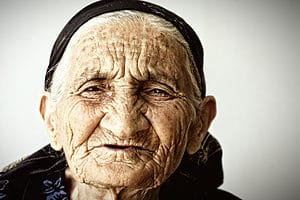Maasai people have always been unique. They stand out aesthetically due to their vivid crimson robes. Despite the threat, they remain cool under pressure and brave with a spear in hand.
Around 17,000 people reside at the Kuku Group Ranch, which is situated in a 283,000-acre vital migration corridor at the foot of the Chyulu Hills, Hemingway’s “Green Hills of Africa,” between the Tsavo and Amboseli National Parks.
The most famous animals of East Africa, such as lions, elephants, leopards, zebras, and giraffes, call this region home. Over seven million people live in and near Mombasa, Kenya’s second-largest city, and depend on the land’s key resources, including wildlife reserves, carbon-sinking forests, rivers, and springs that provide fresh water.
Though the Maasai live peacefully near wildlife the vast majority of the time, they do have to protect their tribe. One man shows just how protective he can get when a lion kills one of his cows.
Watch This Maasai Man Defend His Cow Against a Lion!
The large female feline is chomping away at the cattle when the Maasai man comes running from a great distance away. With a machete in hand, he’s ready to show that lion who’s boss. Lucky for him, the lion sprints off at the mere sight of the man!
Someone filming the interaction even tells him he’s crazy for going toe-to-toe with a wild animal like that. With one simple warning, the lioness now knows there’s a boundary and not to cross it, even for a meal as large as a cow.
Heed the Warning
As the lioness continues to walk into the brush, she comes upon her sleeping herd. We can safely assume she told them about the dangers in the nearby village. It’s not likely any of them will be hunting over there anymore.
As the world becomes more progressive, we’re becoming increasingly aware of the words we say. A comment on the video points out that calling this man crazy, wasn’t the nicest thing to say, especially as a tourist.
“I’m Kenyan and when someone, especially a Maasai, says “wewe” while pointing a machete at you, then it’s probably wise to apologize and walk away. That man understood what she said and found it offensive, probably because many privileged tourists have called him crazy before.”
For the Maasai, raising livestock including cattle, goats, and sheep is their main source of revenue. An essential part of the Maasai economy and a social necessity is livestock. Animals are exchanged for other animals, money, or livestock byproducts like milk and meat. Through the gifting or trading of cattle, individuals, families, and clans developed strong bonds.
Additionally, cows and goats are sold to pay for children’s uniforms and school costs. Young Maasai men and women are now frequently seen in Kenya’s largest towns and cities selling a variety of goods in addition to goats and cows, such as beads, cell phones, charcoal, and grain. This, among many other reasons, is why they’re so protective over their cattle.
The photo featured at the top of this post is © GoodFocused/Shutterstock.com
Thank you for reading! Have some feedback for us? Contact the AZ Animals editorial team.






